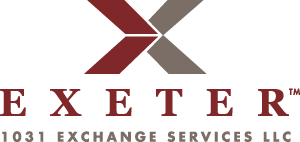Forward, Reverse and Improvement 1031 Exchange Structures
Forward or Delayed 1031 Exchange
Most 1031 Exchange transactions will be structured as Forward or Delayed 1031 Exchanges where you sell and close on the sale of your relinquished property first and then subsequently acquire and close on the purchase of your replacement property within the prescribed 1031 Exchange deadlines. You can learn more about 1031 Exchanges by reading our article entitled "Introduction to 1031 Exchanges" or by downloading a copy of A Guide to 1031 Exchanges©.
Simultaneous or Concurrent 1031 Exchange
In some instances, you may be able to close on the sale of your relinquished property and the purchase of your replacement property simultaneously or concurrently. The simultaneous or concurrent 1031 Exchange is the most basic of 1031 Exchange structures. The simultaneous or concurrent 1031 Exchange occurs when one or more relinquished properties are swapped or exchanged simultaneously for one or more replacement properties. The relinquished property and the replacement property transactions close on the same day.
Zero Equity 1031 Exchange™
You may occasionally find yourself in a situation where you have no equity left in your rental or investment property. This occurs when the fair market value ("FMV") of your rental property has fallen below the amount that you owe ("debt or mortgage loan") on your property, which in turn eliminates any available equity that you once had. This scenario is very common during economic recessions or economic downturns that affect the real estate industry.
However, you may still have a taxable gain to worry about even when you have no equity left in your rental or investment property. You can still complete a 1031 Exchange on rental property that has no cash equity. This will allow you to defer the payment of your capital gain and depreciation recapture taxes even though you have no equity. We coined the phrase Zero Equity 1031 Exchange™ to help educate investors about this situation. You can learn more by reading our article entitled "Saved By A Zero Equity 1031 Exchange."
Reverse 1031 Exchange
There are times when acquiring your replacement property before selling your relinquished property can be a powerful 1031 Exchange strategy. You can accomplish this by structuring a Reverse 1031 Exchange. Safe-Harbor Reverse 1031 Exchange transactions are structured pursuant to Revenue Procedure 2000-37.
Exeter Reverse 1031 Exchange Services, LLC administers both Safe-Harbor and Non-Safe-Harbor Reverse 1031 Exchange strategies using both the Exchange First (relinquished property parking) and Exchange Last (replacement property parking) Reverse 1031 Exchange structures, as well as the recent tax court decision structure Bartell v. Commissioner.
You can learn more about Reverse 1031 Exchange strategies by reading our articles entitled "Overview of the Reverse 1031 Exchange" and "Introduction to Reverse 1031 Exchanges Pursuant to IRS Revenue Procedure 2000-37." (See special requirements and procedures for opening a Reverse 1031 Exchange).
Improvement 1031 Exchange
Sale proceeds from the sale of your relinquished property can be used to acquire a replacement property and build, construct or improve the replacement property through an Improvement 1031 Exchange (also known as a Construction 1031 Exchange or Build-To-Suit 1031 Exchange). Your replacement property is acquired and held or "parked" by an Exchange Accommodation Titleholder ("EAT") while the build-outs or improvements are made to the property within the required 1031 Exchange deadlines.
You can learn more about Improvement 1031 Exchange strategies by reading our short article entitled "Overview of Improvement or Construction 1031 Exchanges". (See special requirements and procedures for opening an Improvement, Build-To-Suit or Construction 1031 Exchange).
Foreign Property 1031 Exchanges
You can 1031 Exchange domestic (U.S.) property for other domestic (U.S.) property or you can 1031 Exchange non-domestic (foreign) property for other non-domestic (foreign) property that are held and used as rental or investment properties or used in your trade or business operation. 1031 Exchanges of domestic for non-domestic property are not considered to be like-kind properties and do not qualify for 1031 Exchange treatment.
International, often referred to as foreign or offshore, 1031 Exchanges involve complex issues above and beyond the normal 1031 Exchange transactions due to significant differences in foreign country laws, regulations, business and cultural practices, and foreign languages. Fluctuations in the foreign currency exchange rates can also pose a significant risk to any international, foreign or offshore property 1031 Exchange as well.
Exeter 1031 Exchange Services, LLC has significant experience and expertise with foreign property 1031 Exchange transactions, including the handling of foreign currency transfers. Exeter 1031 Exchange Services, LLC has administered foreign property 1031 Exchange transactions in approximately forty-five (45) countries, including the following countries: Australia, Canada, Costa Rica, Germany, Greece, India, Israel, Mexico, New South Wales, New Zealand, Panama Canal, Poland, South Africa, Turkey and the United Kingdom (U.K.) or England.
